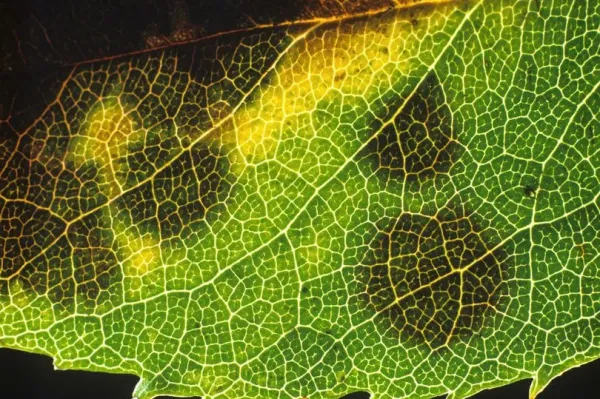
Autumn's tapestry of colours could be under threat for rose enthusiasts as the dreaded black spot disease looms, capable of stopping blooms in their tracks.
As damp and cooler conditions settle in, gardens could become hotbeds for the dreaded fungal menace known as black spot, which reveals itself through unsightly dark splotches on yellowing foliage of roses.
Gardening guru Cathy, co-founder of The Wieders Garden, has reassured green thumbs that while black spot might not spell instant doom for roses, it leaves them susceptible to harsh weather, pests, and other ailments.
She explained: "Blackspot is not usually lethal in and of itself, but it can severely weaken a rose to the point where it won't survive unfavourable weather (protracted drought conditions, for example) or a very harsh winter."
Advising on the bloom-sapping nature of the disease, she further noted, "Since it affects the leaves, plants that struggle to produce adequate food can't produce the same number of buds and those it does produce are often smaller and not the best form."
Guard Roses Against the Ravages of Black Spot This Autumn
Banishing black spot from afflicted roses can prove a daunting task, yet there's a straightforward preventative strategy using an everyday item.
Surprisingly, cracked corn, typically spotted in bird feeders or among poultry treats, doubles as a gardener's ally against fungi due to its augmentation of the soil.
Cathy underscored the practicality and cost-effectiveness of cracked corn, saying: "Cracked corn is an inexpensive source of the beneficial fungus Trichoderma which research has shown to be an effective fungal biopesticide."
Gardeners have hailed cracked corn as a game changer for battling the dreaded black spot on roses, with one enthusiast declaring: "We can attest to its efficacy. We have been treating our rosebeds with cracked corn since 2005 and have noticed a dramatic decrease in the incidence of blackspot when we put it down in early spring compared with those years when we either didn't use it at all or put it down much later in the season."
According to gardening experts, black spot is a fungus that thrives in wet conditions but struggles to spread when soil drainage is improved, which is where cracked corn steps in. This nifty little trick not only boosts soil quality but also wards off excess humidity that can invite unwelcome fungal infections.
For green-fingered enthusiasts eager to try this method, cracked corn can be sourced from select garden centres and online platforms including Amazon or eBay. The application is a breeze, simply sprinkle a generous amount of the golden kernels on your rose beds before adding mulch or compost to keep your roses in tip-top shape.
Yet, for those looking for the most straightforward solution, the best line of defence against black spot could lie in maintaining a clean and tidy garden during autumn. Ensuring fallen leaves are scooped up promptly can significantly reduce fungal infection risks.
Cathy underscored the importance of cleanliness in the fight against plant diseases, stating: "Cleaning up any damaged or infected leaf litter goes a long way toward helping keep fungal infections like blackspot from spreading through a garden."
In addition to hygiene, ensuring that roses receive the right care through routine weeding, watering, and feeding plays a crucial role in fending off infections. For added peace of mind, selecting rose varieties known for their resistance to disease can also help keep the pesky black spot at bay.
Cathy stated: "Choosing varieties of roses that are known to be naturally resistant to blackspot can also help, but resistant does not mean immune and even the highly resistant Knock-outs can develop blackspot in the "right" (or wrong) circumstances."
READ MORE: New Look shoppers get 'lots of compliments' on 'cosy' faux fur leopard print coat